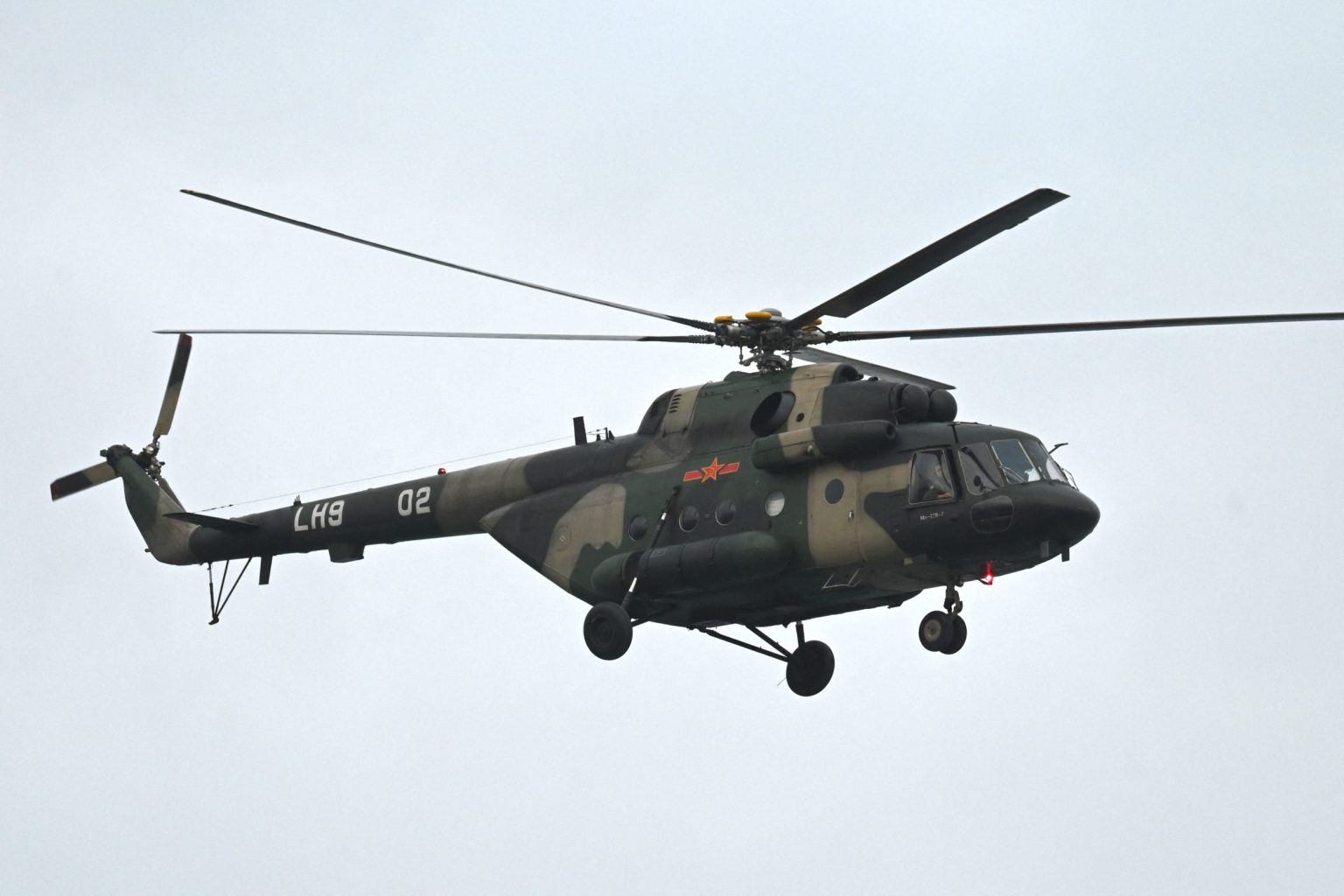A recent incident in the South China Sea involved a Chinese military helicopter intimidating a Philippine research team conducting an environmental survey near the Spratly Islands. The Spratlys are a heavily disputed region, with China claiming sovereignty over the majority of the South China Sea, including areas claimed by Vietnam, the Philippines, Taiwan, and Malaysia. The incident occurred near Thitu Island, which lies within the Philippines’ internationally recognized exclusive economic zone (EEZ), sparking concerns about China’s aggressive actions in the region.
Footage of the incident shows the Chinese navy helicopter hovering above the researchers, who were reportedly left injured by the dangerously low-flying activities. The Philippines’ fisheries bureau confirmed the incident and criticized the Chinese military’s actions. Additionally, on the same day, Chinese coast guard and Maritime Militia vessels were tracked entering the disputed waters, with Beijing claiming to have thwarted Philippine nationals allegedly occupying a sandbar—a claim refuted by Manila.
Jeffrey Ordaniel, an associate professor at Tokyo International University and senior researcher at the Pacific Forum think tank, commented on the incident, stating that China’s use of a military helicopter within the Philippines’ EEZ showed a significant escalation of tensions. Ordaniel warned that without a meaningful response from the Philippines’ allies and partners, China will continue to challenge the status quo and assert control in the region. The incident also coincided with Chinese ships intercepting a Philippine supply convoy to a military outpost on Second Thomas Shoal, further escalating tensions in the area.
In response to the incident, the United States condemned China’s actions against lawful Philippine maritime operations in the South China Sea. The State Department spokesperson reaffirmed the U.S.’s commitment to its ally, the Philippines, under the mutual defense treaty, stating that support extends to Philippine assets anywhere in the region. The U.S. called on China to respect international law and maritime norms, urging all parties to refrain from actions that could escalate tensions or lead to conflict in the strategically important and volatile region.
The incident highlights the ongoing tensions in the South China Sea, where territorial disputes, overlapping claims, and military activities have become increasingly contentious. The presence of Chinese military assets, such as helicopters and naval vessels, in disputed waters raises concerns about potential confrontations and the risk of miscalculations that could escalate into armed conflict. The international community, including the U.S. and its allies, closely monitors developments in the South China Sea and works to uphold freedom of navigation and peaceful resolution of disputes in accordance with international law.


